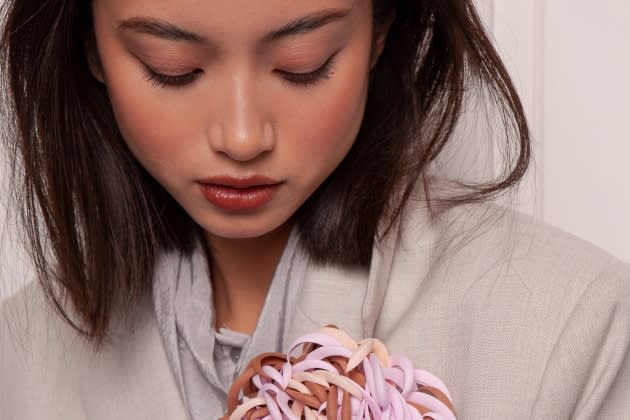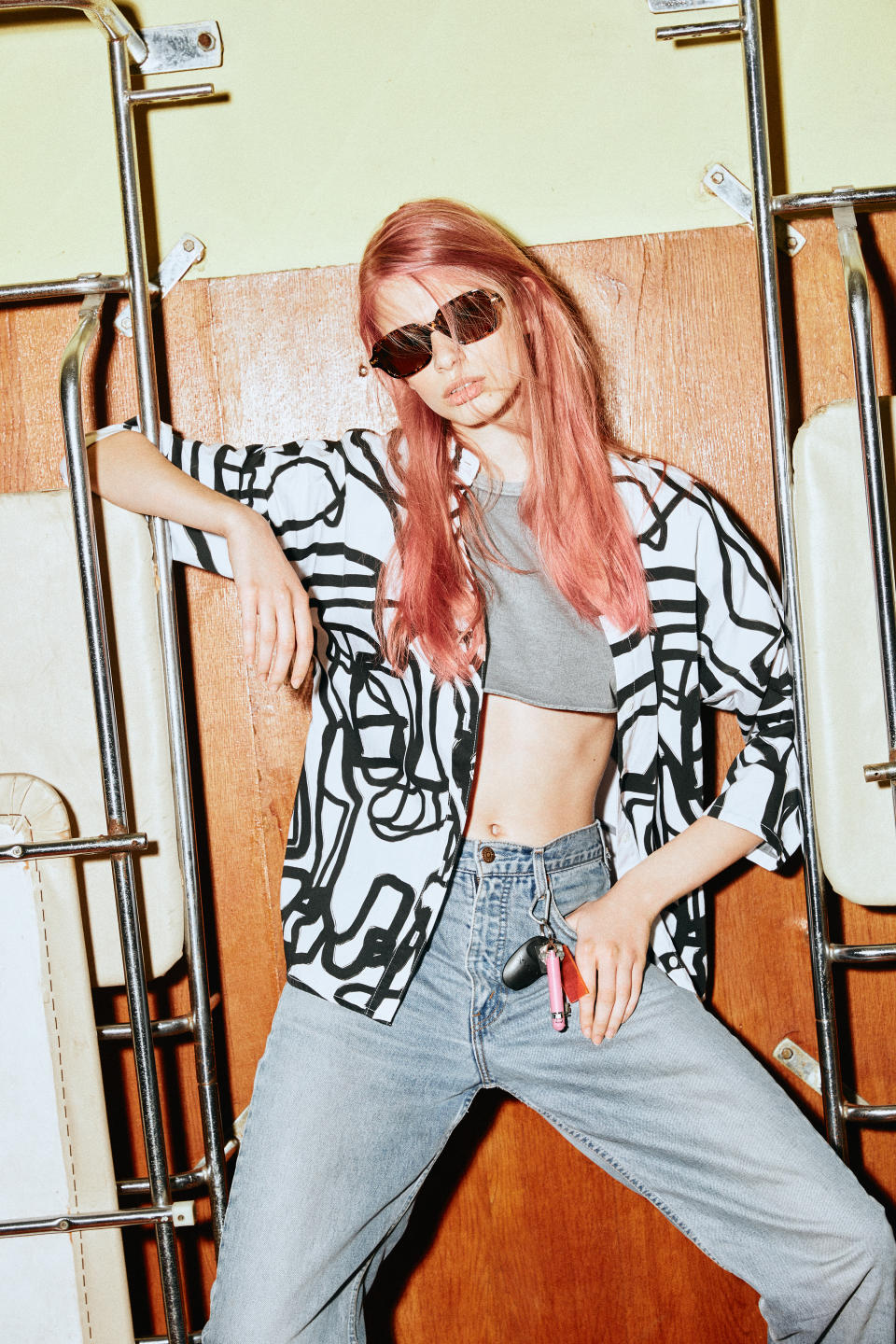Ukrainian Designers Attend Coterie to Strengthen Sales

Days before the one-year anniversary of the Russian invasion of Ukraine, Kyiv-based designer Katerina Basovskaya could be found in the unlikeliest of places — the Jacob K. Javits Center in New York.
In the U.S. for the first time, participating in the Coterie show as part of the Freedom Fashion Ukraine contingency helped her to secure a 10-year visa. But Basovskaya plans to depart for Kyiv Saturday. More than eight million people have fled Ukraine since that time, but Basovskaya is not among them.
More from WWD
Safety concerns are a reality of everyday life in Ukraine’s capital city, but “this is my choice and my family’s choice. In some ways, we get used to it,” she said.
For example, when there are alarms, those in high-rise buildings will leave, but those in two-floor or three-floor structures will remain there. Her four-year-old daughter attends kindergarten in a streetfront school with an underground level that keeps students safe. Basovskaya and her team, however, will exit their office to go underground. But other Ukrainians do not, “Some people are just sick of the whole situation and feel angry about it.”
Explaining why so many have chosen to stay in Ukraine, she said, “We have our whole lives there. We have our land, jobs, cars — everything that we have worked our whole lives to get. We cannot simply just leave that right now and start all over again.”
Aside from temporarily relocating for three months to western Ukraine at the start of last year, she has remained in Kyiv. “We just didn’t want to see or experience all of the other horrible things that others saw,” Basovskaya said.
Her return will start with a flight to Warsaw followed by a 24-hour bus ride, which could potentially be longer, to Kyiv.
Needless to say, business is challenging, since jewelry purchases are generally emotional ones that are prompted by “being in a good mood. It’s not like buying trousers or a skirt,” she said. “Most people feel uncomfortable about the situation. They are concerned about their lives and their children. But at the same time, we want to live, to produce jewelry and new designs.”
The Freedom Fashion Ukraine’s showcase in New York came together with the support of the USAID Competitive Economy Program through a grant for Lyiv Fashion Week. USAID’s program supports startups as well as small and medium-sized enterprises internationally
The initiative was led by fashion consultant Jen Sidary, who introduced the Angelforfashion platform last year to help 32 Ukrainian brands broaden sales.
Most of the 15 independent stores that wrote orders for the Ukrainian designers on Tuesday at the show were initially attracted by the styles — and were unaware that the resources were Ukrainian, Sidary said, adding that at least 15 other orders are in the works. Neither media coverage of Friday’s one-year anniversary nor an oversize Ukrainian flag on display in the booth were what attracted people to the booth. “No, shockingly, people were walking by and noticing the collections. The styles were selling themselves.”
Valery Kovalska’s handcrafted leather pieces, TMosca knitwear, Chereshnivska’s upcycled styles and Samokish jewelry were among the styles that generated interest at the show. Poche and Valery Kovalska were also shown at Coterie.
On-site sales, of course, were welcome. “As you know, the Ukrainian market for fashion brands had mostly collapsed,” said Chereshnivska’s designer Iryna Kokhana, who noted that relying on upcycled materials is advantageous under the circumstances in terms of maintaining production and keeping workers employed.
Now based in London, Kokhana plans to return to Ukraine, where her three-person team continues to operate in Lviv, once the war ends. Before the Russian invasion, there were seven employees. The most challenging aspects of business are getting orders, and production, since rolling four-hour blackouts mean the workshop conditions can be limited electrically and nearly freezing temperatures, she said.

Eyeing the future, Kokhana said she expects Ukraine to prevail, hopefully this year, and she plans to invite everyone who is supporting her to celebrate. “I am really grateful for this opportunity [in New York]. If you were to stop and start from scratch, everything would be more difficult. Being part of USAID CEP, we are able to keep going,” she said.
As for Basovskaya said she hoped this trip would not be her last. “For some miracle, I have the opportunity to come here for 10 years,” she said.
Best of WWD

